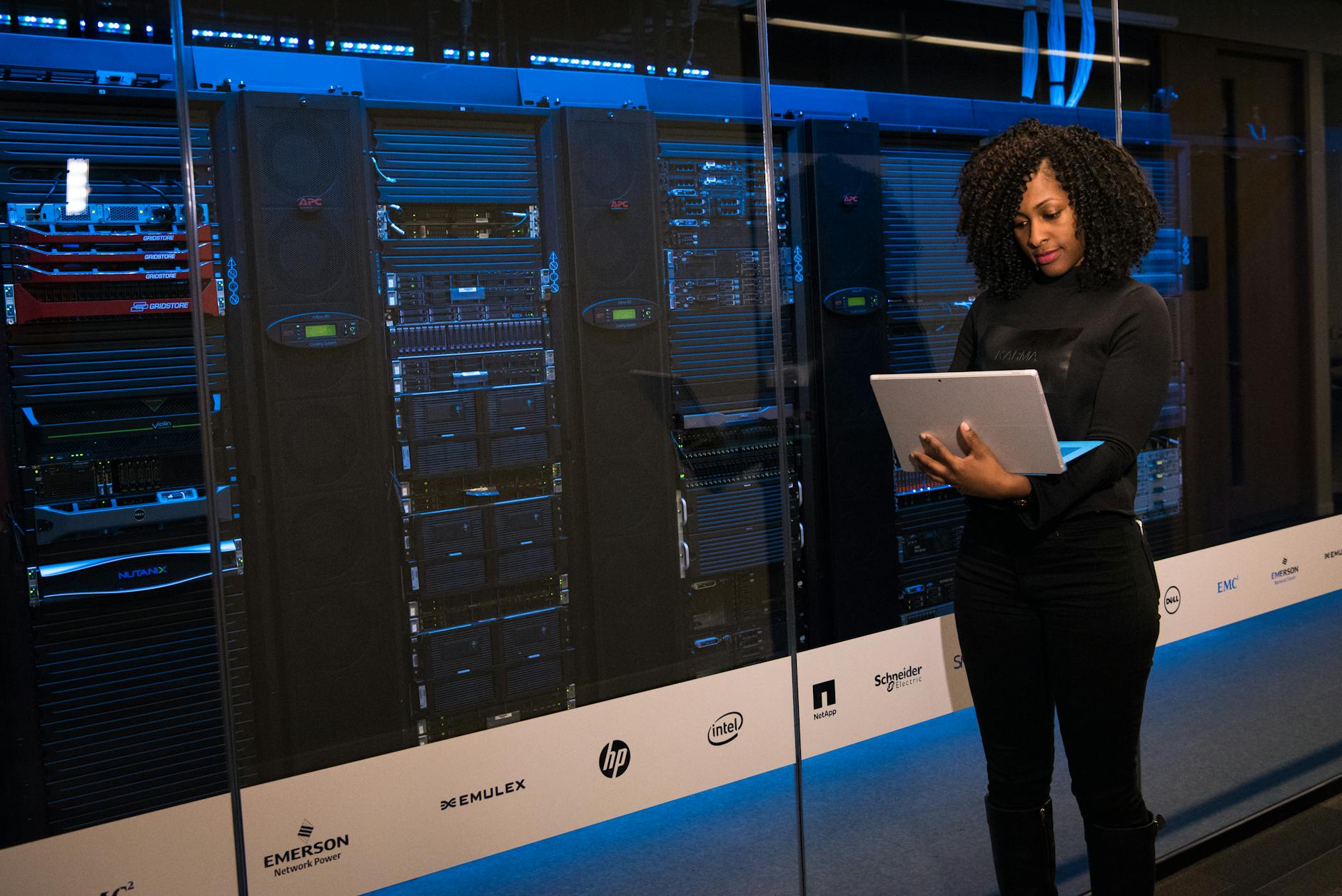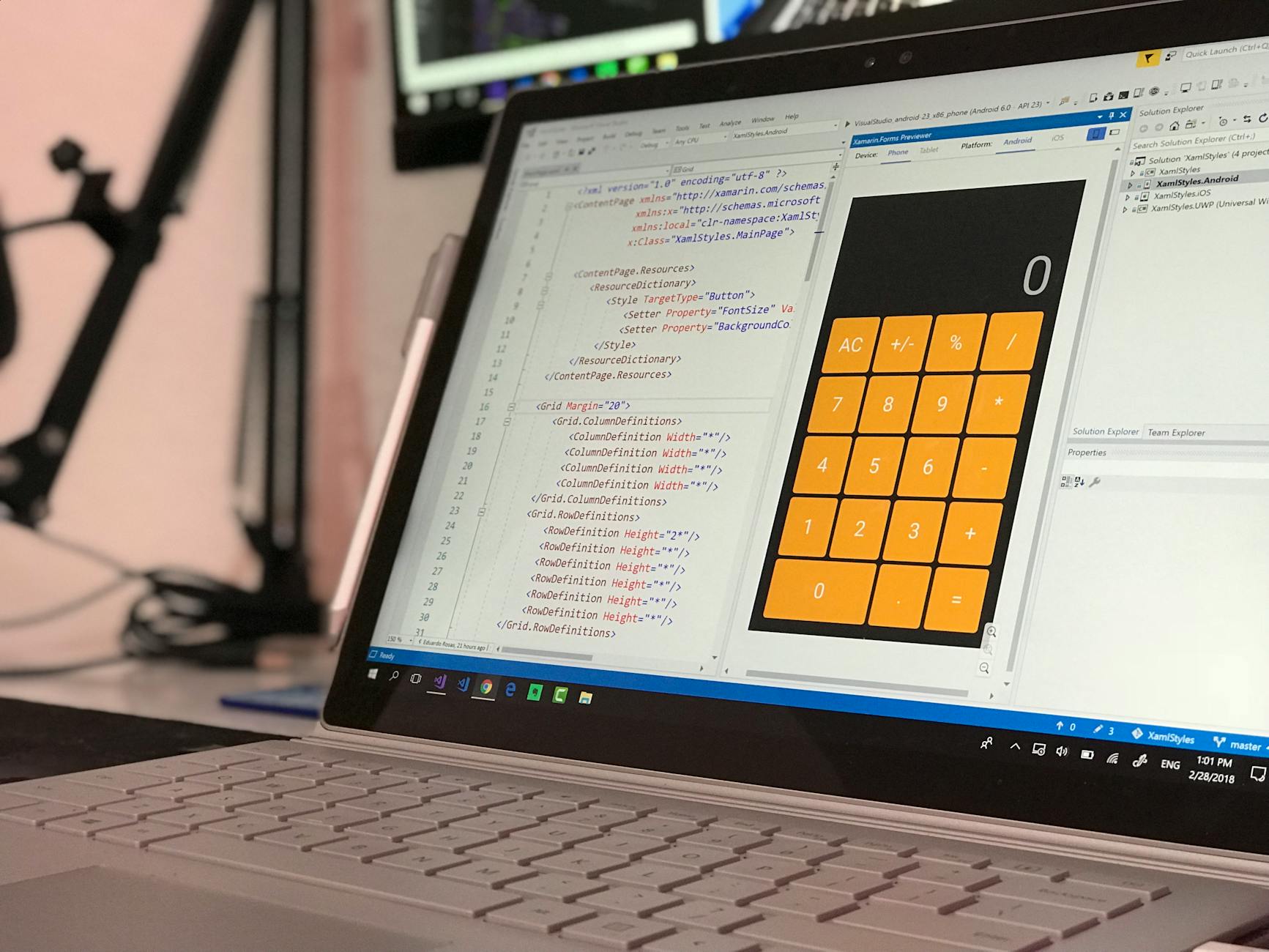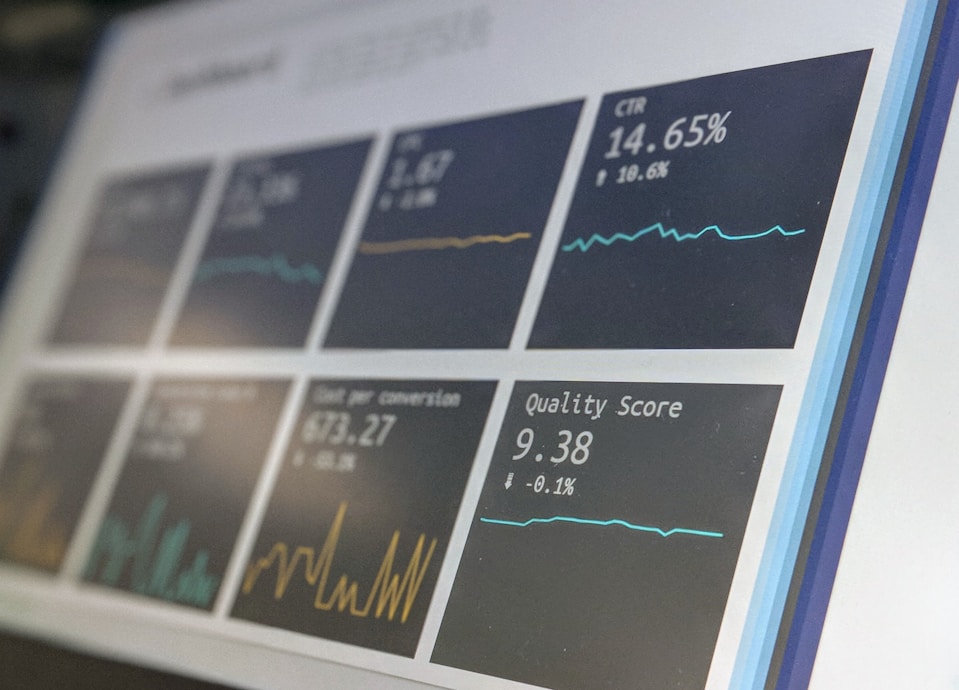Manufacturing is a complicated business. A lot of elements have to function together coherently in order for operations to flourish and the needed goods to be created.
As you know, the scale of production is often determined by the availability of raw materials. Additionally, inventory levels need to coincide with demand otherwise you risk understocks and lost revenue opportunities or oversupply and unnecessary costs. Finally, when you’re ready to ship your products, the supply chain can be affected by a myriad of external factors.
Well, with so many manufacturing processes at play, how can one ensure efficiency and success? Following the industrial automation trend and implementing manufacturing software that automates and simplifies various tasks is definitely one of the main approaches. However, it can be difficult to identify the specific types of software needed for a manufacturing company.
Hence, in today’s post, we will take a broader look at the various types of manufacturing software and how they can help your business. Before we start, it’s important to mention that some of the solutions we cover have similar functionalities and deliver alike benefits. Naturally, this means that you won’t be needing all of the tools we outline below. Let’s get started.
Project Estimates
Watch our webinar to learn about the practical ways to evaluate your software project estimates.
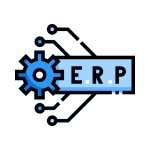
1. ERP Software
One of the most common software types for manufacturing companies to rely on is definitely ERP systems. These tools are used to manage day-to-day business operations, including production, accounting, procurement, project management, compliance, supply chain monitoring, and more.
Typically, a manufacturing ERP system increases organizational efficiencies and reduces costs by optimizing the use of company resources. This is achieved thanks to the technology’s ability to provide visibility across disparate manufacturing areas and allow them to be managed from a central platform.
All in all, it’s pretty safe to say that ERP software is practically a must for the manufacturing industry. Since it helps manage so many areas of the business, it can be a real savior for many companies.

2. Manufacturing Execution Systems
Another important solution type is a manufacturing execution system (MES). This one is mainly concerned with monitoring the production process by tracking real-time data in order to optimize outputs. Specifically, an MES can help allocate resources across production stages, develop optimal schedules, deliver visual shop floor representations, and help managers identify potential issues.
Discover how we effectively migrated Software for Better Plant Production Monitoring
Generally, this type of software is used by production managers, shop floor supervisors, and other staff members who might be involved in the process of goods creation. Often, an MES needs to integrate with an ERP solution so that information about production and materials can be effectively merged with data from other business areas.
So, if you want efficient production planning software for manufacturing, an MES is the right fit for you.
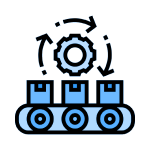
3. Product Lifecycle Management Tools
A product lifecycle management (PLM) tool can be an important technology for manufacturers to leverage. Especially for those looking to effectively manage product data throughout its lifecycle.
Overall, these types of solutions serve as centralized hubs for all information related to initial product requirements, item parts, manufacturing documents, engineering change orders, quality workflows, and the like.
So, if you want to acquire a holistic view of product development — look no further. With a well-developed PLM solution, you’ll be able to quickly boost productivity and ensure your goods are always of top-notch quality.
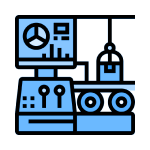
4. Statistical Process Control Solutions
For manufacturers, few things are as damaging to the business as a poor product. Often, it is a result of a mishap during one of the production processes.
To avoid issues, some turn to statistical process control (SPC) software. It employs industry-standard methods for real-time quality control throughout manufacturing processes. Essentially, SPC scrutinizes data from various product and process-related measurements to identify if there are any unacceptable variations that need to be corrected.
Thanks to SPC software, productivity is maximized, quality is improved, and costs that rack up from dealing with defective products are reduced.
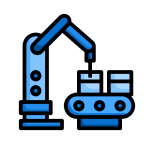
5. Computer-Aided Manufacturing Software
The fifth type of software you might be interested in is computer-aided manufacturing (CAM). These solutions take computer-aided designs that specify material types or dimensions and convert them into information that machines can actually use to create a finished product.
All in all, CAM software allows you to manufacture goods directly from a design, instead of manually setting up machinery and operating it. As you can imagine, it’s typically used by production managers and shop floor employees who are eager to embrace solutions that help save time and reduce potential errors.

6. Enterprise Asset Management Software
Companies from asset-heavy sectors like construction, energy, and manufacturing are always looking for convenient ways of monitoring their holdings. To that end, enterprise asset management (EAM) software can help.
You see, EAM systems allow manufacturers to manage and analyze the performance of all the physical, company-owned assets. Thus, easing the process of overseeing equipment health and ensuring proper maintenance. Typically, these solutions are great for large enterprises that have an extensive range of assets to be controlled.
Additionally, some companies are employing connected devices and merging the data they collect with artificial intelligence in order to forecast equipment failure before it occurs. Naturally, this helps avoid unnecessary losses associated with machine downtime and fixing costs. Moreover, within industrial manufacturing, IoT-powered software is getting particularly popular, with some companies leveraging it to monitor assets from afar.
Find out how we built an IIoT System for Monitoring Anchor Installation
So, now that you know what enterprise asset management software is, it might be time to truly consider implementing it into your organization. If you don’t have an in-house development team — don’t worry. Instead, try collaborating with experienced specialists who will be able to guide you through the entire process.

7. Computerized Maintenance Management Systems
Maintenance solutions are crucial manufacturing control software. After all, everybody wants to avoid broken down assets that prevent efficient production.
So, some companies turn to computerized maintenance management systems (CMMS) which are similar to the above-mentioned EAM software type. However, despite having comparable capabilities, CMMS is focused on maintenance specifically, not asset management across a variety of business functions.
So, a CMMS centralizes maintenance-related information and simplifies the process of keeping equipment in top shape. With this software, the utilization of machinery, vehicles, plant infrastructures, and other assets can be optimized. Thus, leading to higher efficiencies and lower costs.

8. Inventory Management Solutions
Effectively managing inventory levels is crucial for any organization that’s in the business of selling some type of goods. Hence, manufacturing companies are frequent buyers of inventory management software.
In short, these types of solutions provide real-time inventory data while automating the process of stock tracking, product reordering, and warehouse management. This in turn helps increase profitability by reducing out-of-stocks and minimizing overproduction.
Read up on how Velvetech built Inventory Management Software for an Energy Company

9. Supply Chain Planning Tools
Supply chain planning tools take stock-level coordination and logistics a step beyond ordinary inventory management solutions.
This type of manufacturing software encompasses pretty much everything to do with the delivery of goods to customers. They help detect supply chain issues and suggest how they can be avoided with minimal losses. Additionally, these tools can forecast supply and demand in order to optimize planning and delivery schedules.
Overall, with well-developed supply chain monitoring software, you’ll gain end-to-end visibility into how your shipping is carried out and find ways of optimizing efficiency of the entire manufacturing process.
Find out how we built a Cold Chain Monitoring Solution

10. EHS Software
In manufacturing, regulatory compliance is of utmost importance. Whether it’s about ensuring employee safety and well-being or monitoring manufacturing effects on the environment — there are various laws that need to be adhered to. Here, environmental health and safety (EHS) software can come in.
So, what is EHS software? Overall, EHS solutions serve as central hubs for storing and analyzing any and all information pertaining to work health and safety, waste outputs, and sustainability. They help manufacturers keep track of hazardous materials, perform inspections, and stay on top of relevant environmental metrics.
As a result of employing EHS management software, your company can reduce workplace risks, decrease waste generation, and stay compliant with all the important regulations.
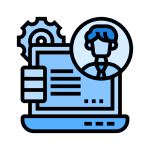
11. Job Shop Management Software
Job shop management software is typically used by small manufacturing firms who don’t want to invest in large ERP systems. After all, the functionality of these two types of solutions is quite similar.
With job shop management software, you’ll have the opportunity to manage sales and purchasing, inventory, low-scale production, and maybe even accounting tasks. However, you should keep in mind that this software isn’t a common choice for large enterprises.
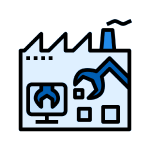
12. Engineer-to-Order (ETO) Software
Engineer-to-Order software, commonly known as ETO, is like a tailored suit for manufacturing businesses. It’s designed for those who create custom products or projects, as well as it’s a good pick as a cost-estimating software for manufacturing.
ETO software helps optimize the process, from the initial concept to the final product, by allowing businesses to engineer unique solutions that meet specific client requirements. Think of it as the perfect tool for those who don’t just make products but craft experiences.
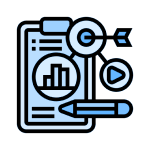
13. Material Requirements Planning (MRP) Software
Material Requirements Planning (MRP) software for manufacturing process is the master organizer. It’s the behind-the-scenes character that keeps inventory, production schedules, and resource planning in perfect harmony.
MRP software ensures that manufacturers have the right materials at the right time to meet production demands. It does share ERP and other features but may be handy for manufacturers experimenting with materials and having fluctuating demands rather than a never-changing production volume and assortment.
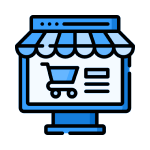
14. E-Commerce Software
E-commerce software in manufacturing is like having a 24/7 storefront that never sleeps improving sales efficiency. It’s the tech-savvy sidekick that helps manufacturers reach a broader audience and sell products online.
This software integrates online sales platforms with manufacturing processes, enabling businesses to efficiently manage orders, inventory, and shipping. It’s the modern-day bridge that connects the production floor to the digital marketplace.
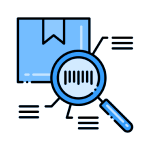
15. SKU Management Software
SKU Management software brings much relief to a manufacturer’s workflow. SKU, or Stock Keeping Unit, software helps keep track of every product variation, size, color, or style efficiently. It’s the meticulous organizer that ensures every product is easily identifiable and manageable within the inventory. Like a librarian cataloging books, SKU management software keeps everything in its rightful place, making retrieval and organization easier.

16. Administrative Tools
Finally, we’ve reached the last manufacturing software type that we’ll discuss today — administrative solutions. However, here we’d like to point out three distinct categories that can also be present across a variety of other sectors. Chances are high you’re already familiar with them, but we couldn’t wrap up this article without mentioning these tools for basic business operations.
Accounting Software
Manufacturing accounting software is used by companies of all shapes and sizes to effectively manage their financial operations, carry out transactions, and maintain accurate records. Typically, these solutions vary in complexity depending on the needs of each company and are often integrated into ERP systems.
Read up on how we integrated a CRM with QuickBooks for a Consulting Firm
CRM Platforms
A major tool for manufacturers to leverage if they want to optimize customer relationship management is a CRM. By providing smooth lead management, automating sales workflows, and offering extensive data analytics, low-code CRMs have become indispensable for most organizations.
Find out more about the Power Manufacturing CRMs Have in Sales
Project Management Solutions
No matter how effective your project manager is, it’s hard for them to do their job without suitable software. In this case, you’ll need to turn to project management tools that help coordinate tasks, allocate workloads, monitor productivity, and generally assist in managing teams. With them, all of your undertakings will have a higher chance of successful completion.
How to Prioritize the Manufacturing Software Types You Need

Now that you’ve seen some of the most popular manufacturing software types, you might be wondering where to start. The truth is, every organization has varying priorities. So, you may not be able to implement all of the solutions that you’re interested in from the get-go.
Hence, you may want to think about the following when deciding which development project to start with first:
- Existing budget
- Company’s current IT environment
- Planned development of the organization
- Complexity of existing processes
- Internal priorities of what needs to be improved
Of course, you may already have some existing systems that are working quite well and might just be missing a few vital features. In that case, perhaps all you need is an API for integration with another module that meets your requirements.
Or, if you’re looking for more flexibility within your infrastructure, perhaps what you’re really on the hunt for is a way to transition to cloud-based manufacturing software. Whatever the case may be — you’ll find the right approach by consulting experts.
Acquiring the Right Manufacturing Software
Today, we’ve covered multiple types of manufacturing software and how they can help your business. We’ve also discussed some key factors that you’ve got to consider when identifying which solutions should be built first. However, we understand that it can be overwhelming.
Hence, Velvetech’s team is always ready to help you determine which software type is the right priority for you. Our manufacturing software experts will happily discuss your unique business requirements and take the development work off of your hands so that you get the needed solution as quickly as possible. Don’t hesitate to reach out to our team and start our collaboration.




















